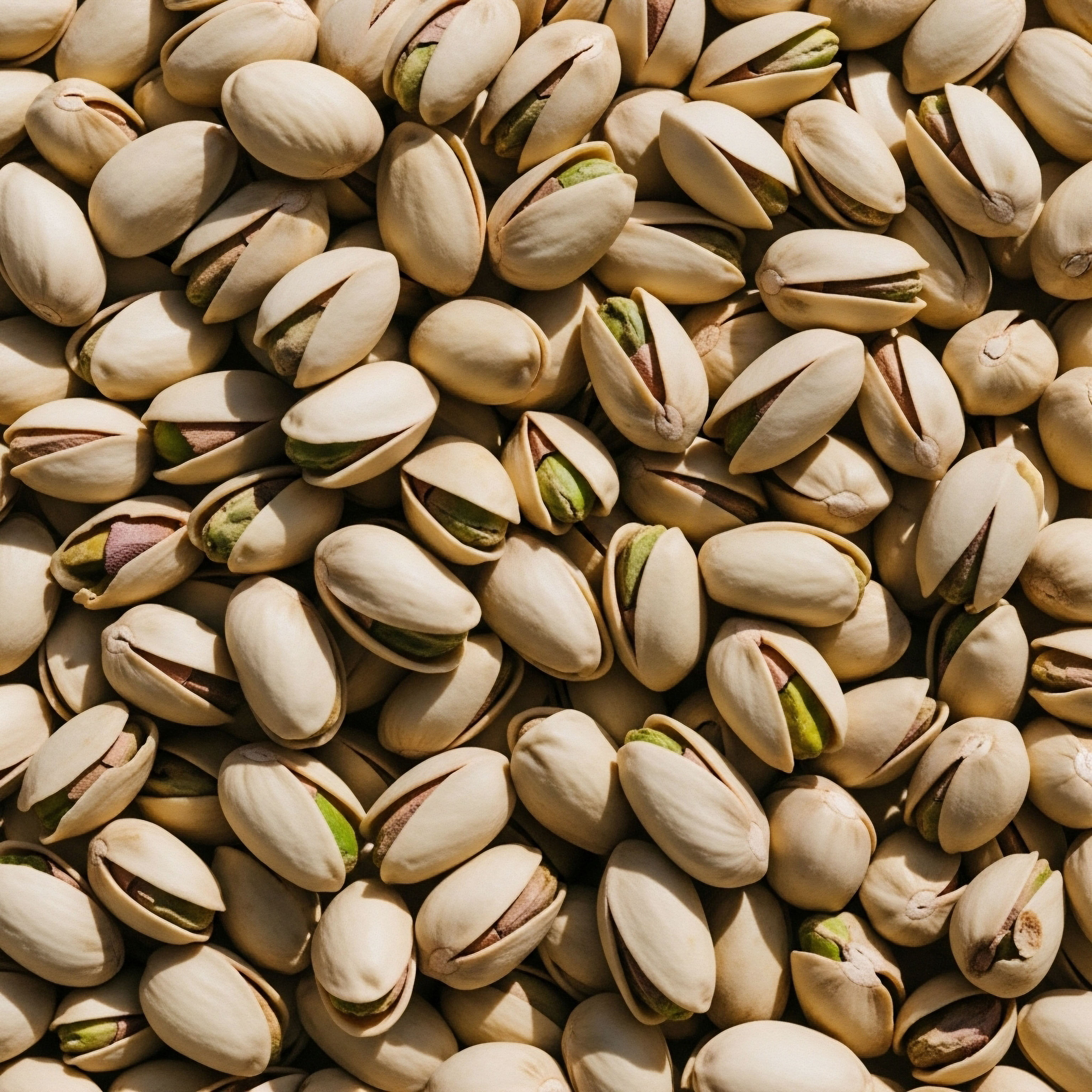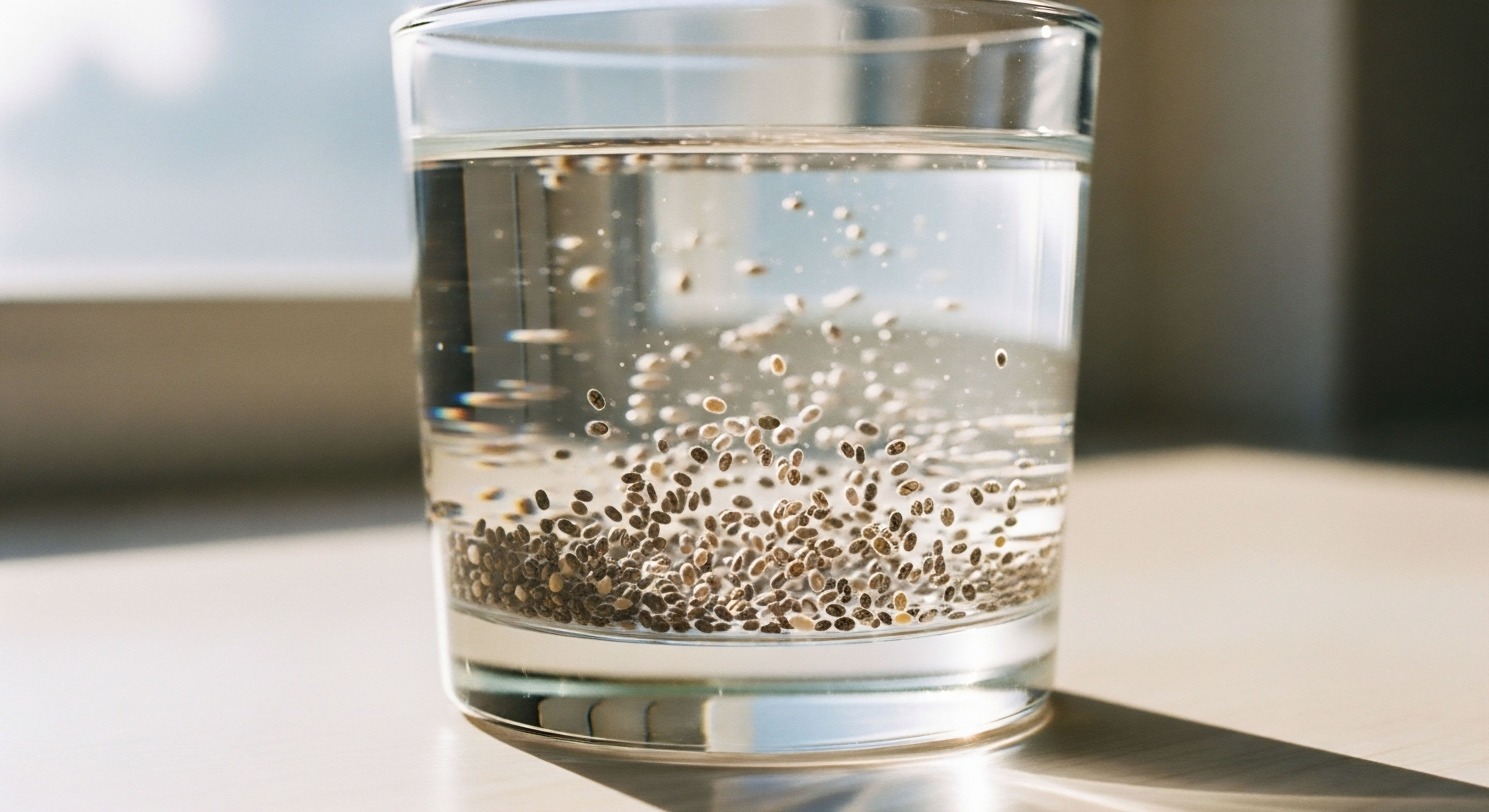

Fundamentals
You feel the shift in your body’s internal climate. The energy that once came easily now feels distant, and the mirror reflects a subtle change in your physique that workout routines alone cannot seem to address. This experience, this intimate acquaintance with your own biology, is the true starting point for understanding hormonal health.
The conversation about testosterone is frequently centered on its role in virility and muscle mass, yet its influence extends deep into your metabolic engine room, governing how your body utilizes energy, manages weight, and maintains cellular vitality. To optimize these benefits, we must first look at the fuel your body receives. The food you consume provides the raw materials required for every biological process, including the synthesis and function of hormones.
Your body’s ability to produce and utilize testosterone is profoundly linked to your nutritional state. A chronic calorie deficit, for instance, sends a powerful signal to your endocrine system to downshift, conserving resources for survival. This can suppress hormone production. Conversely, a well-formulated diet provides the necessary building blocks for hormonal balance.
This process begins with a clear understanding of macronutrients. Proteins, fats, and carbohydrates are the foundational pillars of your diet, and each plays a distinct role in supporting your endocrine system.
A well-rounded diet, based on whole foods, is the most effective strategy for supporting healthy testosterone levels and overall metabolic function.
Healthy fats, particularly monounsaturated and polyunsaturated fats, are critical. Cholesterol, often viewed negatively, is the precursor molecule from which testosterone is synthesized. Without an adequate supply of healthy fats from sources like avocados, nuts, seeds, and olive oil, you are depriving your body of the fundamental components needed for hormone production.
Lean proteins are equally important, providing the essential amino acids that are not only crucial for building and maintaining metabolically active muscle tissue but also for the creation of signaling molecules and enzymes that regulate hormonal pathways. Carbohydrates, especially complex carbohydrates from whole grains, fruits, and vegetables, provide the sustained energy required to fuel your daily activities and prevent the stress-induced hormonal shifts that can accompany low blood sugar and energy depletion.

The Role of Micronutrients in Hormonal Synthesis
Beyond the macronutrient framework lies a world of micronutrients, vitamins and minerals that act as the spark plugs for your metabolic engine. These elements are cofactors in the enzymatic reactions that convert precursor molecules into active hormones. Without them, the assembly line of hormone production grinds to a halt. Two minerals, in particular, stand out for their direct involvement in testosterone synthesis ∞ zinc and magnesium.
Zinc is a trace mineral that plays a significant role in the function of the enzymes responsible for testosterone production. A deficiency in zinc has been directly linked to reduced testosterone levels. Foods rich in zinc, such as oysters, red meat, poultry, and pumpkin seeds, can help ensure your body has an adequate supply of this vital mineral.
Magnesium is another key player, contributing to both total and free testosterone levels. It is found in abundance in leafy green vegetables like spinach and kale, as well as in nuts, seeds, and whole grains. Vitamin D, often called the “sunshine vitamin,” functions more like a hormone than a vitamin in the body.
It is synthesized in the skin upon exposure to sunlight and plays a crucial role in male reproductive health. Studies have shown a strong correlation between vitamin D deficiency and low testosterone levels. While sunlight is the primary source, fatty fish, fortified dairy products, and mushrooms can also contribute to your intake.


Intermediate
For individuals on a journey of hormonal optimization, whether through lifestyle interventions or Testosterone Replacement Therapy (TRT), a more nuanced understanding of dietary strategy is required. The goal is to create a biological environment that not only supports the therapeutic effects of testosterone but also mitigates potential side effects. This involves a deeper look at the interplay between diet, the Hypothalamic-Pituitary-Gonadal (HPG) axis, and the metabolic pathways that testosterone influences.
One of the primary metabolic benefits of testosterone is its impact on body composition. It promotes an increase in lean muscle mass and a decrease in adipose tissue. This shift is metabolically significant because muscle tissue is more metabolically active than fat, meaning it burns more calories at rest.
A diet designed to support this process should be rich in high-quality protein, with an intake of around 0.8 grams per kilogram of ideal body weight. This provides the necessary amino acids for muscle protein synthesis, the process by which your body repairs and builds muscle tissue after the stimulus of exercise.

Managing Aromatization through Diet
A key consideration for individuals on TRT is the process of aromatization, where testosterone is converted into estrogen by the enzyme aromatase. While some estrogen is necessary for male health, excessive levels can lead to unwanted side effects such as water retention and gynecomastia. Certain dietary choices can help manage this process.
Cruciferous vegetables, such as broccoli, cauliflower, and Brussels sprouts, contain a compound called indole-3-carbinol, which can help modulate estrogen metabolism. By supporting the healthy processing and elimination of estrogen, these foods can contribute to a more favorable testosterone-to-estrogen ratio.
Strategic nutritional choices can amplify the benefits of testosterone optimization protocols by supporting muscle growth and managing hormonal conversion pathways.
Another dietary factor that can influence aromatization is alcohol consumption. Excessive alcohol intake can disrupt hormonal balance and impair testosterone synthesis. It can also place a burden on the liver, which is responsible for metabolizing hormones. Limiting alcohol consumption is a critical step in any hormonal optimization protocol.
Furthermore, maintaining a healthy body weight is paramount, as adipose tissue is a primary site of aromatase activity. A diet that supports fat loss, rich in whole foods and low in processed sugars, can therefore indirectly reduce the rate of aromatization.

Nutrient Timing for Hormonal Optimization
The timing of your meals can also be a powerful tool for optimizing your hormonal environment. Eating at regular intervals helps to stabilize blood sugar levels, which in turn can improve the body’s sensitivity to insulin. Chronic high insulin levels can negatively impact testosterone production.
A pre-workout meal containing a balance of protein and complex carbohydrates can help maintain hormone levels during exercise, while a post-workout meal rich in these same macronutrients can support muscle recovery and testosterone production.
Here is a sample dietary framework for supporting testosterone’s metabolic benefits:
- Breakfast ∞ Scrambled eggs with spinach and a side of avocado. This provides a combination of high-quality protein, healthy fats, and magnesium.
- Lunch ∞ Grilled chicken or salmon salad with mixed greens, walnuts, and a light vinaigrette. This meal is rich in lean protein, omega-3 fatty acids, and a variety of micronutrients.
- Dinner ∞ Lean steak with a side of quinoa and steamed broccoli. This offers a potent combination of zinc, complete protein, and cruciferous vegetables.
- Snacks ∞ Greek yogurt, a handful of almonds or pumpkin seeds, or an apple with nut butter. These options provide a mix of protein, healthy fats, and fiber to maintain stable energy levels throughout the day.
This approach emphasizes whole, nutrient-dense foods that provide the specific building blocks and cofactors required for optimal testosterone function and metabolic health.
| Nutrient Category | Key Nutrients | Food Sources | Metabolic Role |
|---|---|---|---|
| Macronutrients | Lean Protein, Healthy Fats, Complex Carbohydrates | Chicken, fish, avocados, olive oil, quinoa, brown rice | Provides building blocks for hormone synthesis and muscle tissue; sustained energy |
| Micronutrients | Zinc, Magnesium, Vitamin D | Oysters, leafy greens, fatty fish, sunlight exposure | Acts as cofactors in enzymatic reactions for testosterone production |


Academic
From a systems-biology perspective, the metabolic benefits of testosterone are mediated by a complex network of interactions between the endocrine, nervous, and immune systems. Testosterone’s influence on metabolism extends far beyond its direct effects on muscle and fat tissue. It modulates insulin sensitivity, influences inflammatory pathways, and interacts with the central nervous system to regulate energy expenditure and appetite. A sophisticated dietary approach to optimizing these benefits must therefore consider these interconnected systems.
One of the most significant, yet often overlooked, aspects of testosterone’s metabolic function is its relationship with insulin. Testosterone has been shown to improve insulin sensitivity, enhancing the ability of cells to take up glucose from the bloodstream.
This is particularly relevant in the context of preventing and managing metabolic syndrome, a cluster of conditions that includes insulin resistance, high blood pressure, and abdominal obesity. A diet that supports this synergistic relationship would be low in refined sugars and high in fiber, which helps to regulate blood glucose levels and reduce insulin spikes.
The inclusion of foods rich in omega-3 fatty acids, such as salmon and mackerel, can also improve insulin signaling and reduce the chronic inflammation that is often associated with insulin resistance.

What Is the Connection between Gut Microbiome and Hormonal Health?
Emerging research is uncovering a profound connection between the gut microbiome and hormonal health. The trillions of bacteria residing in your digestive tract play a critical role in metabolizing dietary compounds, synthesizing certain vitamins, and regulating systemic inflammation.
An imbalance in the gut microbiome, known as dysbiosis, can contribute to a state of chronic low-grade inflammation that can disrupt hormonal signaling and impair testosterone production. A diet rich in prebiotic fibers from sources like onions, garlic, and asparagus, as well as probiotic-rich fermented foods like yogurt and kefir, can help to cultivate a healthy gut microbiome, thereby supporting a favorable hormonal environment.
The intricate dance between testosterone and insulin sensitivity can be supported by a diet that minimizes glycemic load and reduces systemic inflammation.
The Hypothalamic-Pituitary-Gonadal (HPG) axis, the central command center for testosterone production, is highly sensitive to both physiological and psychological stress. The stress hormone cortisol, when chronically elevated, can have a suppressive effect on the HPG axis, leading to reduced testosterone levels. Certain dietary components can help to modulate the body’s stress response.
For example, adaptogenic herbs like ashwagandha have been studied for their ability to lower cortisol levels and support healthy testosterone production. Additionally, ensuring an adequate intake of B vitamins, found in whole grains and lean meats, is essential for supporting the nervous system and mitigating the effects of stress on hormonal balance.

How Do Dietary Fats Influence Steroidogenesis?
The process of steroidogenesis, the metabolic pathway that produces steroid hormones like testosterone, is fundamentally dependent on the availability of cholesterol and specific types of fatty acids. While a low-fat diet was once widely recommended for cardiovascular health, research has shown that it can be detrimental to testosterone levels.
A diet that provides a balanced intake of saturated, monounsaturated, and polyunsaturated fats is optimal for supporting steroidogenesis. Saturated fats, found in sources like coconut oil and grass-fed butter, provide the raw material for cholesterol production, while monounsaturated and polyunsaturated fats play a role in maintaining cell membrane fluidity and supporting the function of hormone receptors.
| Component | Mechanism of Action | Dietary Sources |
|---|---|---|
| Indole-3-Carbinol | Modulates estrogen metabolism | Broccoli, cauliflower, Brussels sprouts |
| Omega-3 Fatty Acids | Improves insulin sensitivity and reduces inflammation | Salmon, mackerel, walnuts, flaxseeds |
| Probiotics and Prebiotics | Supports a healthy gut microbiome, reducing systemic inflammation | Yogurt, kefir, onions, garlic, asparagus |
| Ashwagandha | Lowers cortisol levels, reducing stress-induced hormonal suppression | Available as a supplement |
By taking a systems-level approach to nutrition, it becomes possible to create a highly personalized dietary protocol that not only supports the primary metabolic benefits of testosterone but also addresses the complex interplay of factors that contribute to overall hormonal health and well-being. This requires a deep understanding of an individual’s unique physiology, lifestyle, and health goals.
- Assess Baseline Nutrition ∞ Begin by tracking your current dietary intake to identify any potential deficiencies in key macro and micronutrients.
- Prioritize Whole Foods ∞ Focus on a diet rich in lean proteins, healthy fats, and complex carbohydrates from whole, unprocessed sources.
- Incorporate Key Micronutrients ∞ Ensure an adequate intake of zinc, magnesium, and vitamin D through diet and, if necessary, supplementation.
- Manage Estrogen Metabolism ∞ Include cruciferous vegetables in your diet to support the healthy processing of estrogen.
- Support Gut Health ∞ Consume a variety of prebiotic and probiotic-rich foods to cultivate a healthy gut microbiome.

References
- Whittaker, J. & Wu, K. (2021). Low-fat diets and testosterone in men ∞ Systematic review and meta-analysis of intervention studies. The Journal of Steroid Biochemistry and Molecular Biology, 210, 105878.
- Skolnik, H. & Abdenour, T. (2020). Nutrient Timing for Peak Performance ∞ The Right Food, the Right Time, the Right Results. Human Kinetics.
- DiNicolantonio, J. J. & O’Keefe, J. H. (2018). The Salt Fix ∞ Why the Experts Got It All Wrong–and How Eating More Might Save Your Life. Harmony.
- Pizzorno, J. E. & Murray, M. T. (2020). Textbook of Natural Medicine. Churchill Livingstone.
- Lopresti, A. L. Drummond, P. D. & Smith, S. J. (2019). A randomized, double-blind, placebo-controlled, crossover study examining the hormonal and vitality effects of ashwagandha (Withania somnifera) in aging, overweight males. American Journal of Men’s Health, 13(2), 1557988319835985.

Reflection
The information presented here offers a map of the biological terrain connecting your diet to your hormonal health. It provides a framework for understanding the intricate relationship between what you eat and how you feel. This knowledge is the foundational step in a deeply personal process of recalibration.
Your own body is the ultimate laboratory, and your lived experience is the most critical dataset. As you begin to apply these principles, pay close attention to the subtle shifts in your energy, your mood, and your physical well-being. This journey of self-discovery is a powerful one, and it is a path that you are uniquely equipped to navigate. The goal is a state of vitality that is not just restored, but deeply understood and consciously maintained.

Glossary

hormonal health

macronutrients

healthy fats
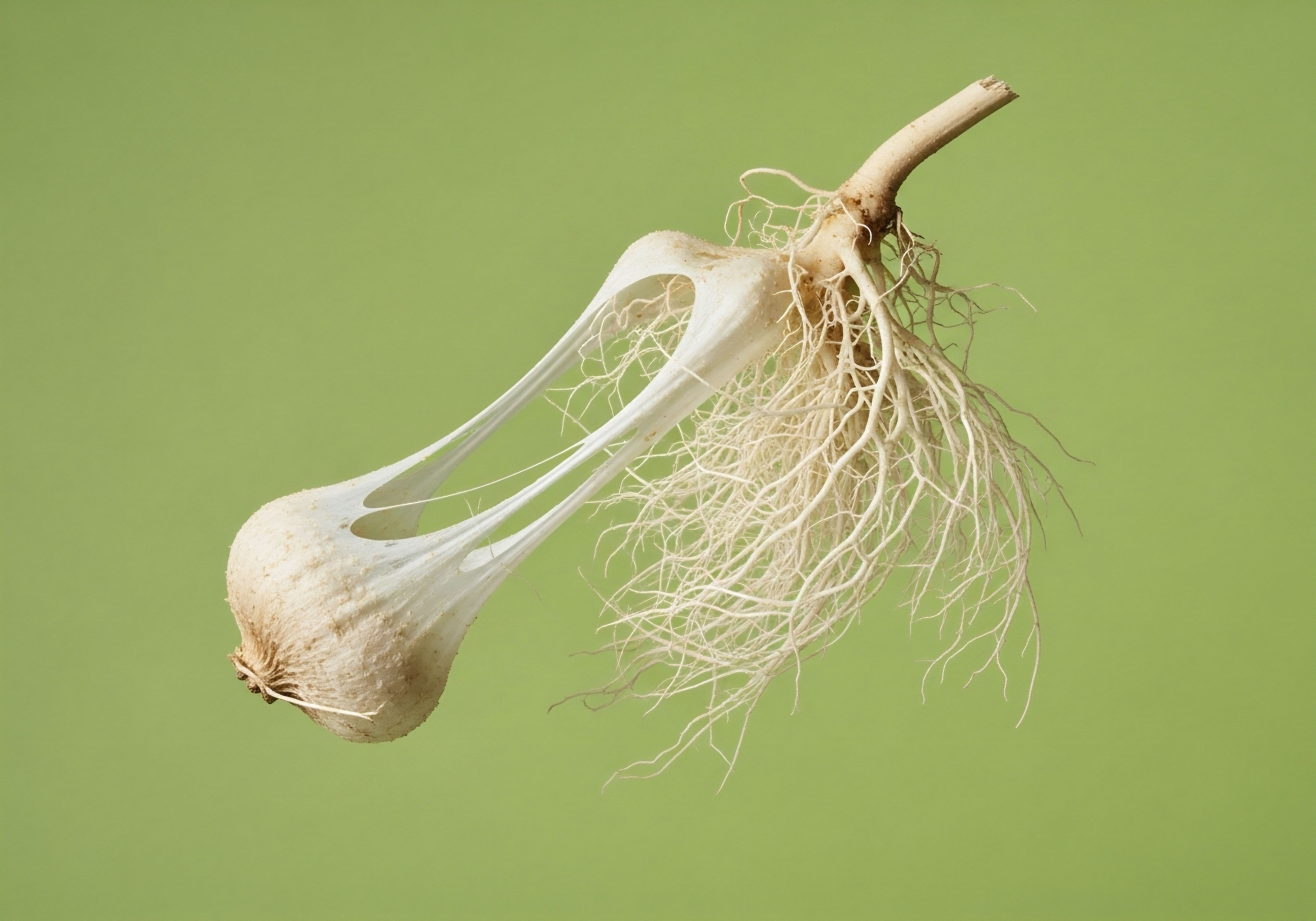
complex carbohydrates from whole

micronutrients

magnesium

testosterone production

testosterone levels

vitamin d

testosterone replacement therapy

hormonal optimization

metabolic benefits

aromatization

estrogen metabolism

complex carbohydrates

omega-3 fatty acids

zinc

metabolic health
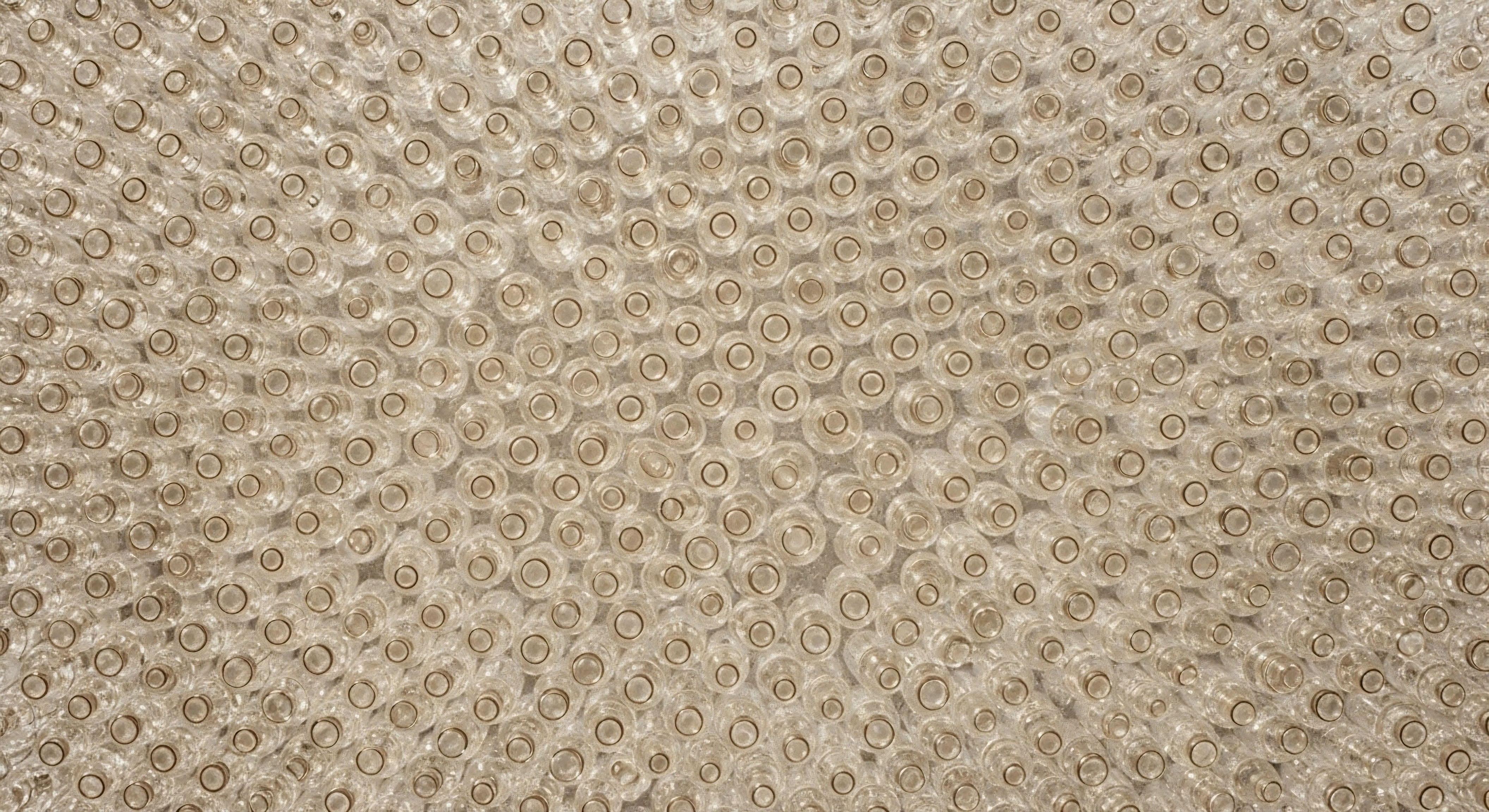
insulin sensitivity

fatty acids

gut microbiome
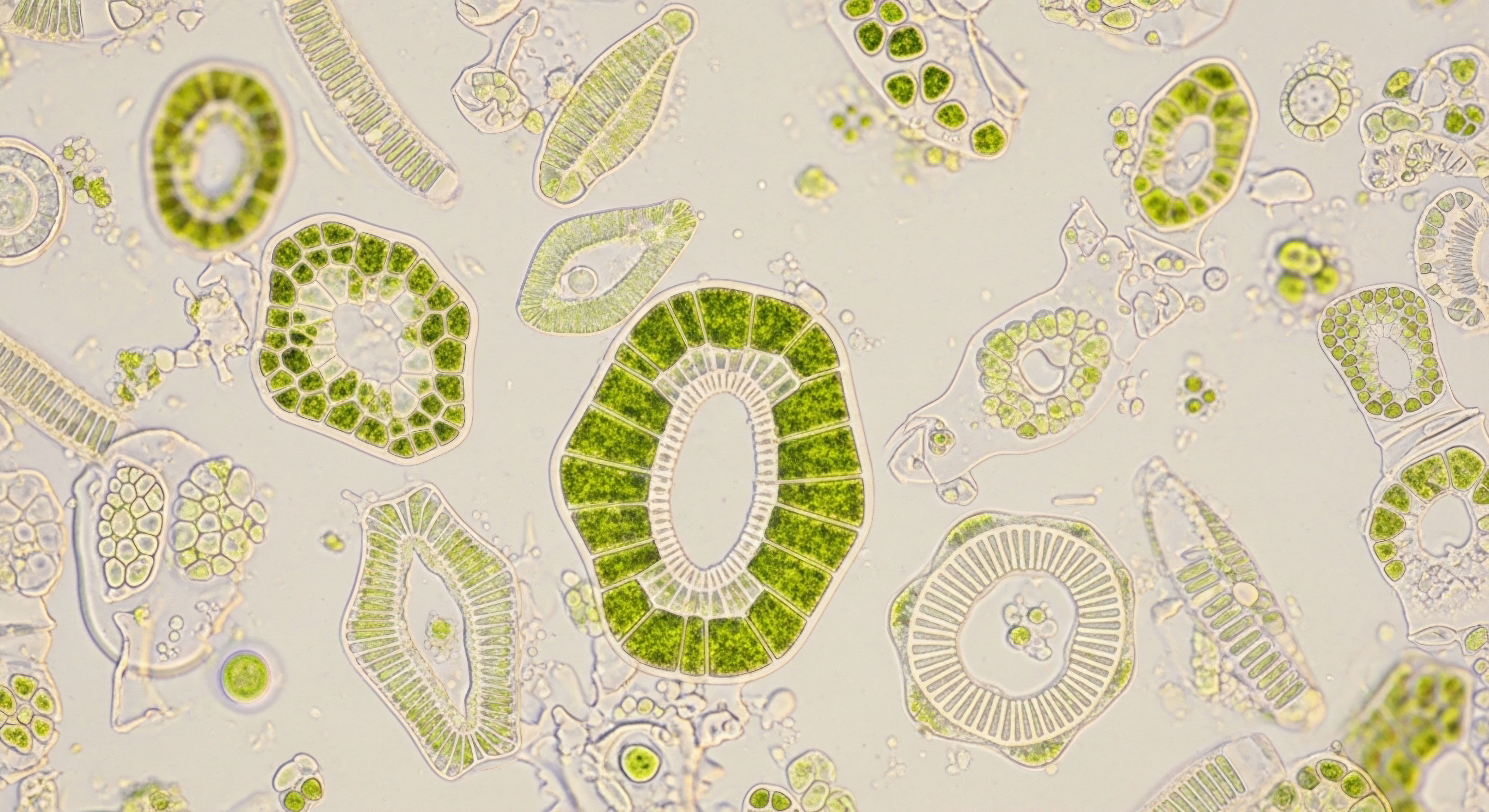
cortisol

hpg axis

